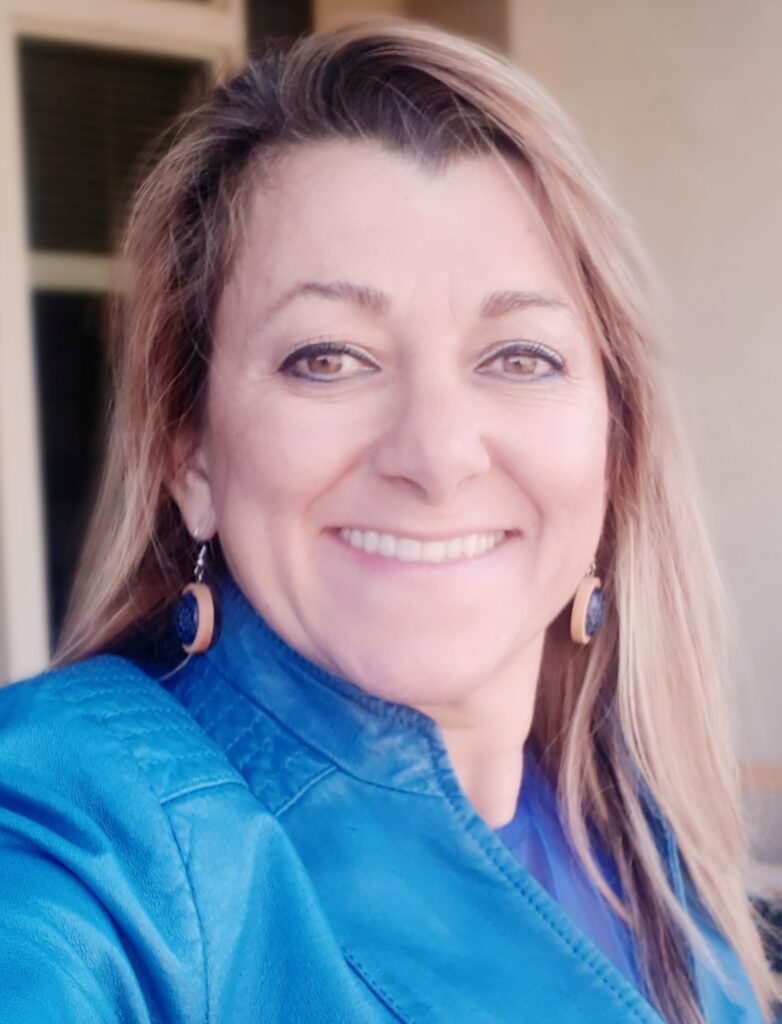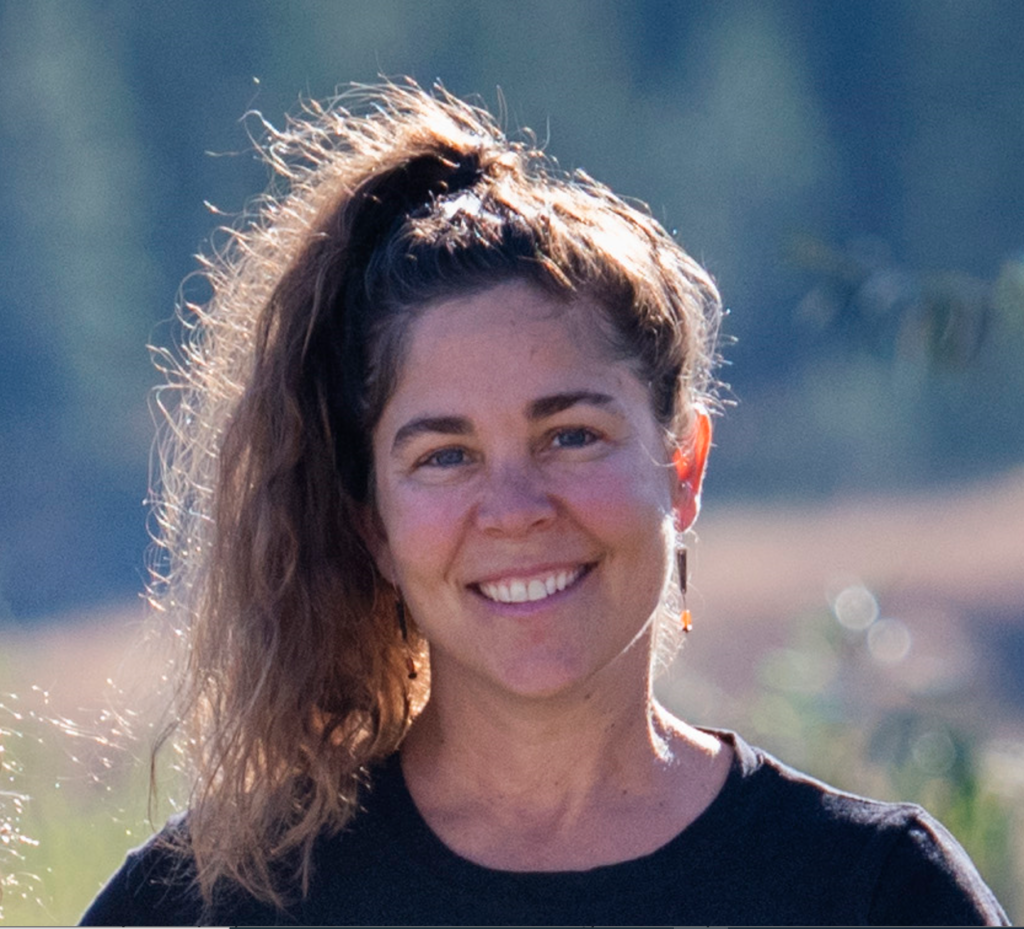Building Connections and Bridging Cultures
In this joint keynote, Dr. Gloria Ramírez and Dr. Jenna Woodrow bring together their personal and professional journeys to explore how multilingualism, interculturalization, and decolonization can create pathways to identity, belonging, and social transformation.
Drawing on her personal journey as a bilingual immigrant educator and scholar and over two decades of international research and practice across Colombia, England, Argentina, the US, and Canada, Dr. Ramírez reflects on her work in bilingual literacy development, immigrant education, and intergenerational Indigenous language revitalization. Her projects, supported by SSHRC, the First Peoples’ Cultural Council, and other international grants demonstrate how culturally grounded research and pedagogy shape the questions we ask as researchers and teachers, bridge cultures, sustain identities, and disrupt colonial legacies.
Dr. Jenna Woodrow shares her personal and professional journey toward inclusive educational excellence, framed within the vision of Thompson Rivers University’s Strategic Internationalization Plan, highlighting efforts to decolonize curricula, collaborate with Elders, and expand access through open educational resources. Drawing on her experiences as a learner, a teacher, a scholar, and an equity advocate, she reflects on challenges faced and lessons learned in creating educational spaces that empower learners to become community-minded and globally conscious.
Both speakers emphasize the importance of dismantling systemic inequities, supporting international learners, and fostering authentic partnerships with Secwépemc knowledge holders. Together, their stories and scholarship converge on a shared vision: education as a space where multiple languages, worldviews, and ways of knowing flourish. By linking research with practice, and personal journeys with institutional commitments, they invite participants to reflect on how we might collectively create global learning communities rooted in justice, respect, and a shared love of learning.
Speakers
Dr. Gloria Ramirez is a Full Professor at the Faculty of Education and Social Work at Thompson Rivers University in Kamloops, BC, Canada where she has held various leadership roles including Education Graduate programs coordinator and B.Ed. Elementary program coordinator. An internationally recognized scholar in bilingual and multilingual literacy development, her research focuses on language and literacy learning among culturally and linguistically diverse children and youth, Indigenous language revitalization, and the educational experiences of immigrant populations. She also investigates effective methods for teaching reading to children from vulnerable populations. Her studies examining reading development in Spanish, English, Mandarin, and Secwepemctsín have been conducted in the US, Canada, Argentina, and Colombia. Over the past 13 years, she has collaborated with Secwepemc communities on Secwepemctsín revitalization in British Columbia, Canada.
Her work bridges developmental psychology, applied linguistics, and education, with a strong emphasis on interculturalization, decolonization, and community-based research. Dr. Ramírez has led and co-led numerous funded projects, including multi-year grants from the Social Sciences and Humanities Research Council of Canada (SSHRC) and the First Peoples’ Cultural Council, advancing intergenerational Indigenous language learning and pedagogically grounded literacy practices.
Dr. Ramírez is deeply committed to mentorship and community engagement. She has supervised over twenty graduate theses in education and serves on boards supporting literacy, immigrant services, and Indigenous language revitalization. Fluent in Spanish and English, with working knowledge of additional languages, she brings a global perspective to her scholarship and teaching.
She has over 30 academic publications including two books, several book chapters, and numerous journal articles in internationally recognized journals. Her research has been published in the Journal of Applied Psycholinguistics, Reading and Writing, Topics in language Disorders, Journal of Learning Disabilities, and Signos, among others. Her work has been supported by grants from The Social Sciences and Humanities Research Council of Canada, COLMEX, the First Peoples Cultural Council, and CONICET, among others.
Dr. Ramírez has received various recognitions and awards including the 2011-2012 Harvard Graduate School of Education, Jeanne S. Chall Visiting Researcher award, Five Thompson Rivers University Research Training Recognition awards, and most recently, the 2024-2025 Thompson Rivers University Excellence in Interculturalization award.
Dr. Jenna Woodrow is an Associate Teaching Professor of Philosophy at Thompson Rivers University, located on the traditional and unceded lands of the Tk’emlúps te Secwépemc within Secwépemcúl’ecw—colonially known as Kamloops. Her teaching and research focus on the intersections of knowledge and justice. She explores how norms evolve, how relationships to land and people ground justification and accountability, and how gender, oppression, and colonization shape the production of knowledge and ignorance. She is deeply committed to education as a way of addressing epistemic injustice.
Dr. Woodrow incorporates these commitments into her pedagogy by working to decolonize and Indigenize classroom activities and assignments. She regularly integrates Elders into her teaching, enriching the classroom with intergenerational knowledge, and has developed curriculum that resists colonial structures, including site visits to residential schools to deepen understanding of historical trauma. She has authored three open-access textbooks, making her teaching materials freely available to all learners. Beyond her classroom impact, she facilitates professional development for colleagues and has served as Chair of the TRU Faculty Association Equity Committee for nine years.
She also serves as faculty advisor to the TRU Philosophy Club, is the Founding Chair of the Canadian Philosophical Association’s Decolonizing and Indigenizing Committee, a member of the Philosophy in the Schools Project, and Western Regional Director and Founding Member of Ethics Bowl Canada.
Jenna is originally from Kuujjuaq in Nunavik (northern Québec). Her parents, Louise Beaudoin and Keith Woodrow, and grandparents are from Montréal, known in Kanien’kéha as Tiohtià:ke, the traditional and unceded territory of the Kanien’kehá:ka Nation, long recognized as a gathering place for many Indigenous peoples. Both her children were born on Secwépemcúl’ecw, and she is grateful to live, work, teach, and learn in these beautiful lands.

